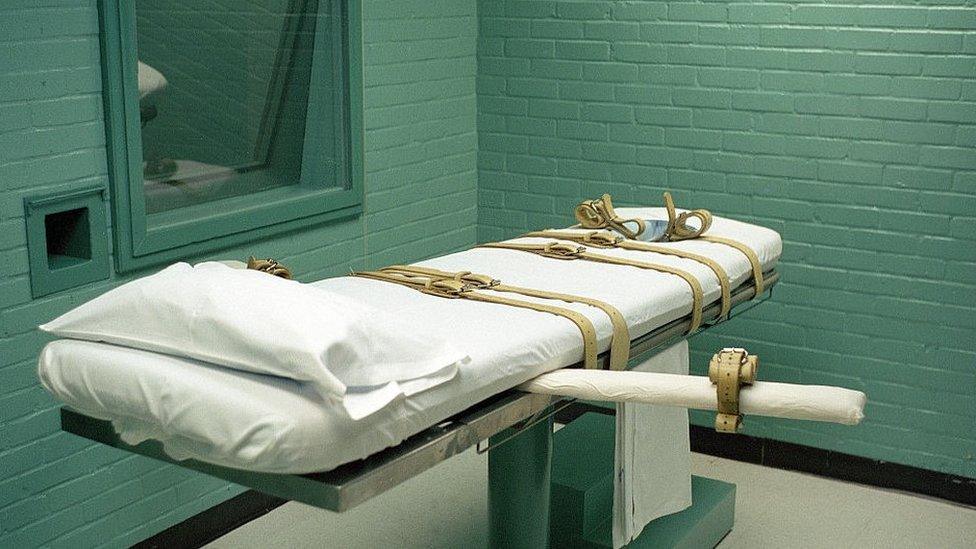South Carolina moves closer to allowing death by firing squad
- Published
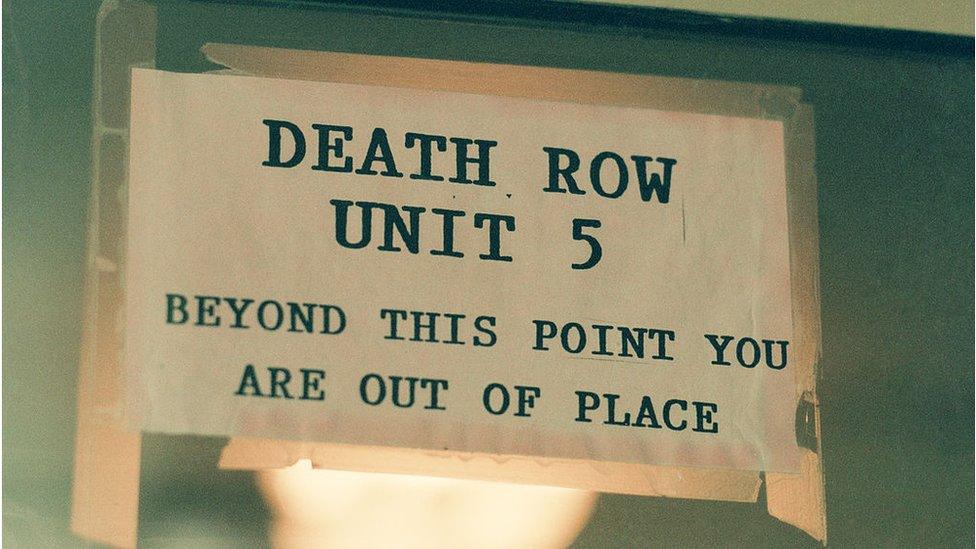
South Carolina lawmakers have passed a bill to allow inmates on death row to be executed by firing squad in the absence of lethal injection drugs.
When signed into law, it will make South Carolina the fourth state in the country to offer the option as a method of capital punishment.
Opponents criticised the new measure as "medieval" but its supporters say it is about bringing closure to victims.
The southern state has not held an execution since 2011.
The legislation passed by the South Carolina House of Representatives aims to restart executions by bypassing the difficulties states face in procuring the drugs for a lethal injection cocktail.
It will go to the state's Senate for a final vote before heading to Republican Governor Henry McMaster, who has vowed to sign the bill "as soon as it gets to my desk".
"We are one step closer to providing victims' families and loved ones with the justice and closure they are owed by law," he wrote on Twitter.
The state currently has 37 death row prisoners. The bill may yet face a court challenge.
Why do lawmakers want to legalise death by firing squad?
South Carolina currently offers death row inmates the choice to die either by lethal injection or in the electric chair. Inmates cannot be forced to die by a method they did not choose.
All but three executed convicts have opted for the former - a three-drug combo that puts prisoners to sleep, induces paralysis and then stops the heart - since it was first introduced in 1995.
But these drugs have become harder to get as manufacturers and distributors do not want their products used to impose the death penalty.
The Republican-controlled House voted 66-43 on Wednesday to make the electric chair the default method of execution when drugs are unavailable and to offer up the alternative of dying by firing squad.
This option was proposed by a Democrat, State Senator Richard Harpootlian, who said it would be more humane than the "extraordinarily gruesome, horrendous process" of electrocution, where people do not die immediately.
Seven House Republicans voted against the bill on Wednesday and one Democrat voted for it.
Convicts are strapped to a chair before they are executed by marksmen, as Ben Bland reports
Explaining his vote in favour of the measure, Republican House lawmaker Weston Newton said: "Those families of victims to these capital crimes are unable to get any closure because we are caught in this limbo stage where every potential appeal has been exhausted and the legally imposed sentences cannot be carried out."
But opponents vigorously decried the bill.
Speaking to the New York Times, Democratic House lawmaker Justin Bamberg said: "Why would South Carolina move toward the firing squad when they also do that in North Korea?"
Critics also pointed out that, too often, Americans on death row are eventually exonerated, sometimes years after their executions.
Where else is this allowed?
Death by firing squad is currently allowed in Mississippi, Oklahoma and Utah, according to the Death Penalty Information Center.
Three inmates have died by firing squad since the 1970s, all in Utah, with the most recent in 2010.
According to Amnesty International, eight countries executed convicts by shooting in 2020. They are China, Iran, North Korea, Oman, Qatar, Somalia, Taiwan and Yemen.
Firing squad executions have also been reported in the past decade in Belarus, Indonesia, Sudan and the United Arab Emirates.
What is the state of executions in the US?
Executions are authorised in 27 states across the country, though several have enacted a moratorium on carrying the punishment out.
A federal moratorium was ended by former President Donald Trump, who resumed them on a federal level last year after a 17-year hiatus. Thirteen people were put to death - including six executions carried out after his election defeat.
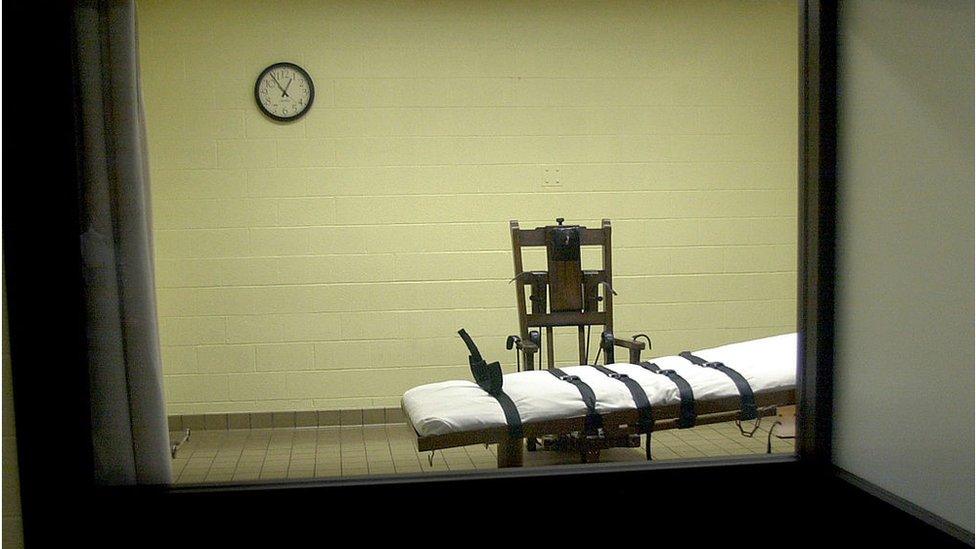
Eight US states offer death row inmates the choice to die either by lethal injection or by electrocution
During his campaign, Joe Biden vowed to end the federal death penalty and encourage states to follow suit, but has not addressed the issue as president.
In 2019, more Americans supported punishing murderers with life in prison than with capital punishment, according to Gallup, which noted this was a first since the pollster began asking the question in 1985.
Related topics
- Published20 April 2021
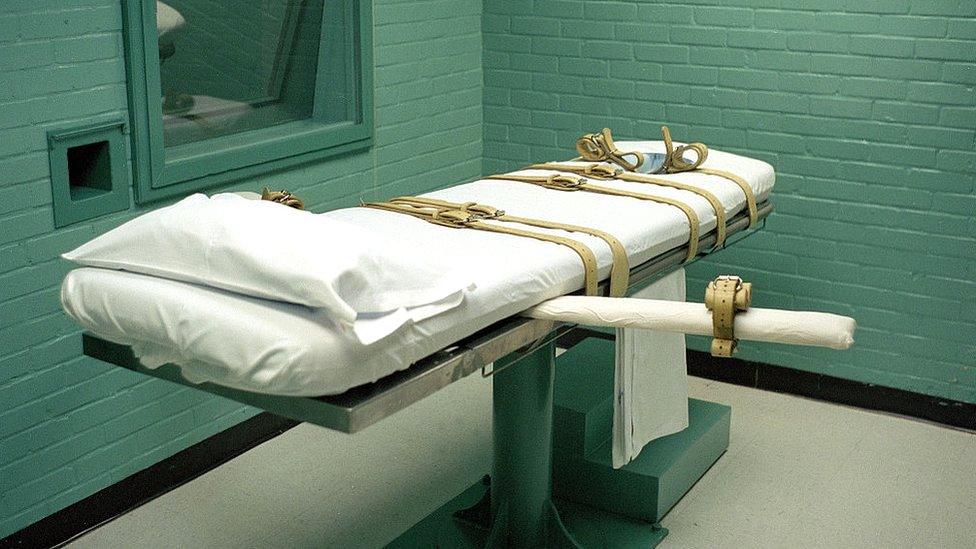
- Published13 January 2021
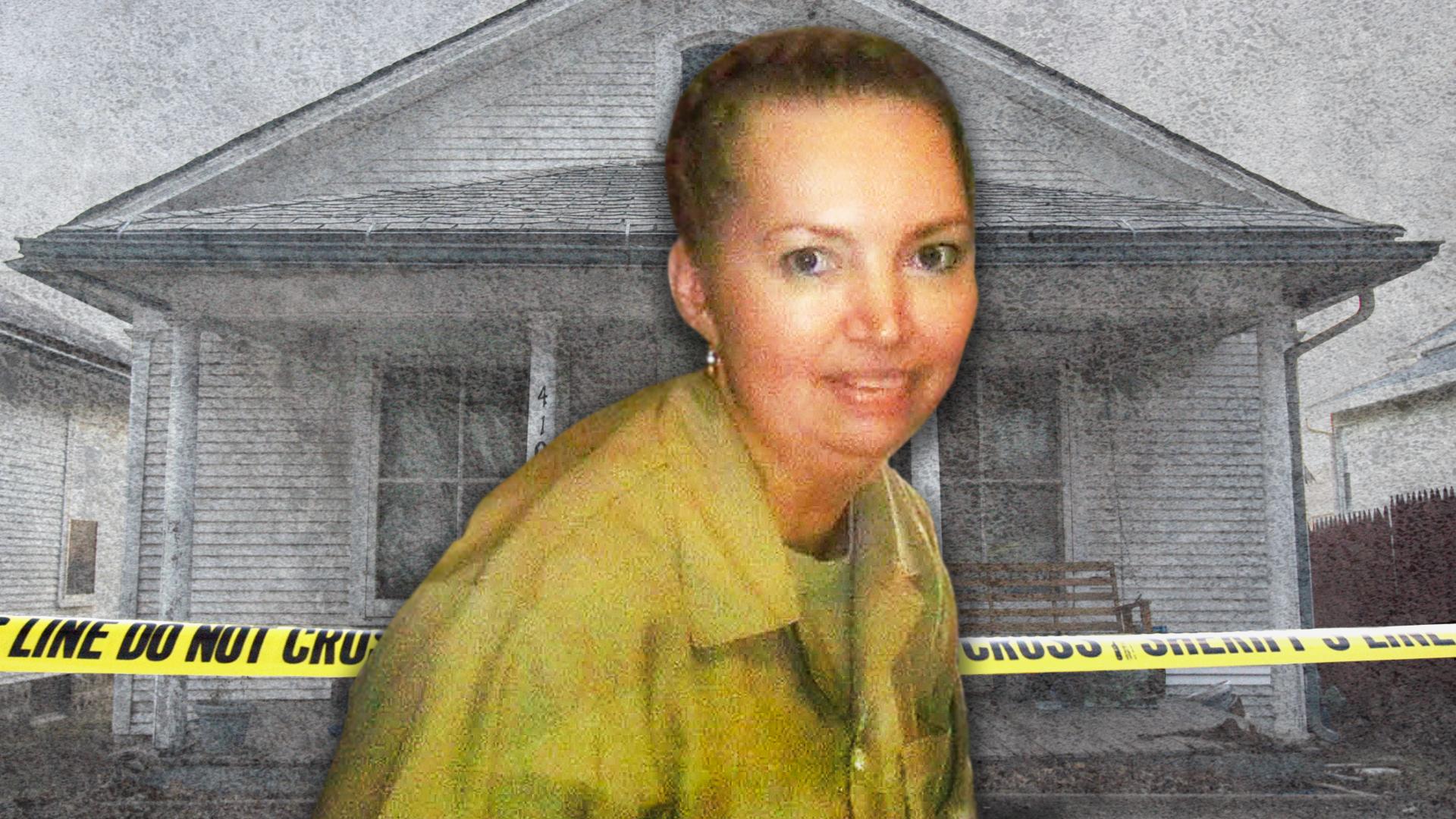
- Published17 August 2020

- Published25 January 2024
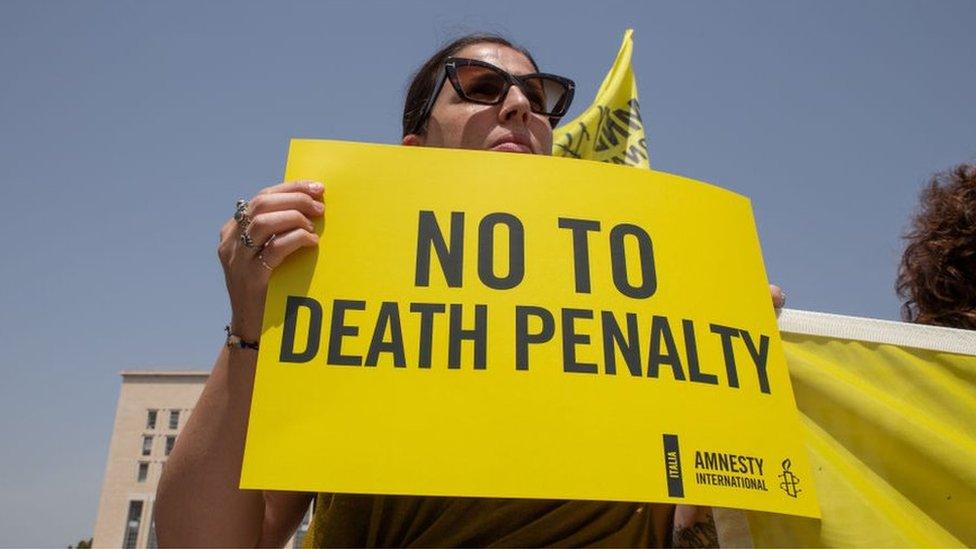
- Published5 June 2020
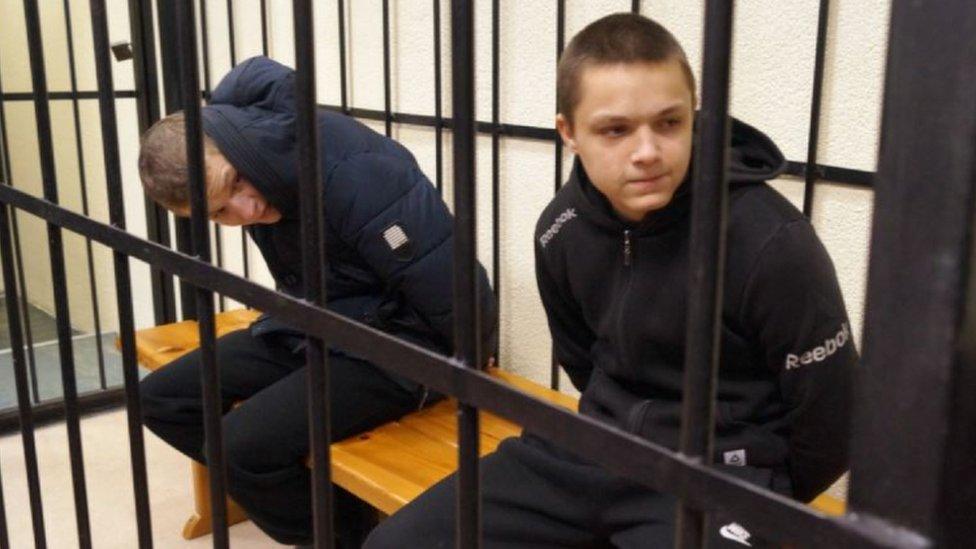
- Published16 August 2020
